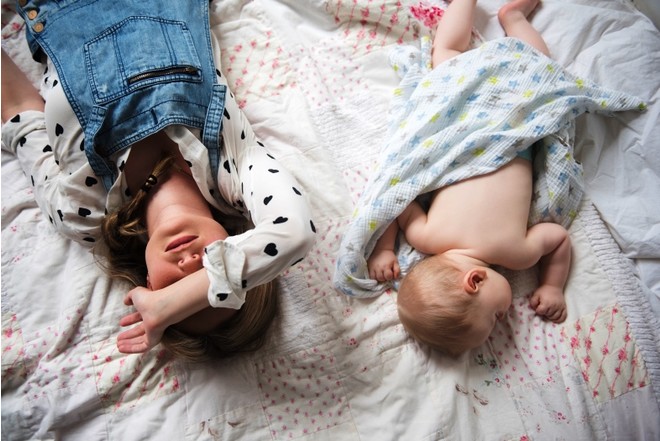"Children are happiness" is an axiom. If you do not think so, then you are a terrible person with a label "chailfrey" on your forehead. And in general, almost Hitler. But now all dissenters have a scientific justification for their doubts about the unconditional happiness that brings the appearance in the family of the child. Photo:GettyImagesFrench scientists from the Paris School of Economics conducted a large-scale study. The scientists studied data from four countries: Great Britain, the USA, Germany and Australia. And they found out that the euphoria from the birth of a child lasts only 12 months. That is, after a year, people no longer notice much happiness - the positive emotional charge is gone. And they completely get used to their happiness and stop noticing it completely after two years. And both mothers and fathers. Then, for at least four years, the level of happiness no longer increases. But there is a noticeable emotional imbalance - after all, the birth of children, like any coin, has two sides. Fatigue, irritability, no personal life, responsibility - all this accumulates and makes itself felt, "blurring" the picture of happiness. - We could not find evidence that the birth of children has a long-term positive effect on people's well-being, - says Andrew Clark, one of the authors of the study. — For personal happiness, a person values having a spouse more than a child. It turns out that having a loved one nearby really does make us happier — and for a long time. True, stress from losing a partner, divorce, or death also doesn’t knock a person out of the happy indicators for too long. The level of happiness four years before and four years after a breakup is about the same. — But we don’t have data for a longer period yet. Maybe when 20, 30, or 40 years have passed since the birth of a child, when we get old and need care, then we’ll feel happy again that we have children, — Clark shrugs. In general, until it comes to the proverbial glass of water, we won’t understand how happy we are that we have children. Or not.
Photo:GettyImagesFrench scientists from the Paris School of Economics conducted a large-scale study. The scientists studied data from four countries: Great Britain, the USA, Germany and Australia. And they found out that the euphoria from the birth of a child lasts only 12 months. That is, after a year, people no longer notice much happiness - the positive emotional charge is gone. And they completely get used to their happiness and stop noticing it completely after two years. And both mothers and fathers. Then, for at least four years, the level of happiness no longer increases. But there is a noticeable emotional imbalance - after all, the birth of children, like any coin, has two sides. Fatigue, irritability, no personal life, responsibility - all this accumulates and makes itself felt, "blurring" the picture of happiness. - We could not find evidence that the birth of children has a long-term positive effect on people's well-being, - says Andrew Clark, one of the authors of the study. — For personal happiness, a person values having a spouse more than a child. It turns out that having a loved one nearby really does make us happier — and for a long time. True, stress from losing a partner, divorce, or death also doesn’t knock a person out of the happy indicators for too long. The level of happiness four years before and four years after a breakup is about the same. — But we don’t have data for a longer period yet. Maybe when 20, 30, or 40 years have passed since the birth of a child, when we get old and need care, then we’ll feel happy again that we have children, — Clark shrugs. In general, until it comes to the proverbial glass of water, we won’t understand how happy we are that we have children. Or not.

Making Money with Desserts: Success Stories
Evgeniya Polischuk (Fedutinova) instagram:@evgeniyafedutinovavk.com/janeshomebaking– It all started with baking for family and friends. Gradually, I started posting photos of my baked goods on Instagram – and orders started coming in. I made my first custom-made cake on October 13, 2014, and a little earlier I started making macaroons and cupcakes. You could say that the business “found me”, I am very […]

Soups are cold recipes with photos
Cold cucumber soup with yogurt and lemonsorbet from the chef of the restaurant La Taverna Alexander Zhurkin Photo: Getty Images Ingredients: Plain yoghurt – 125 g Cucumber – 150 g Lemon/lime sorbet – 50 g Cocktail shrimp – 24 g Fresh ginger juice – 1 g Lime juice – 5 g Fresh orange juice – 5 g Parsley – 1 g Pink pepper – 1 g Watercress – […]

barbeque kebab
Pork tenderloin in glaze Photo:Dmitry Bayrak/dbstudioPreparation time: 20 minutes + marinating time.Calories: 454 kcal per serving.For 4 servings: 4 pork tenderloins (approximately 300 g each), 1 onion, 2 cloves of garlic, 1 tsp. lemon zest, 1 tsp. lemon juice, a pinch of ground cumin, coriander and turmeric, 1 tbsp. vegetable […]

Pierre Duacan: dietary recipes: Ducane diet
Beetroot soup Photo:Season’S, Luxury Hotels RepresentationYou will need:· Boiled beetroot – 60 g· Fresh cucumbers – 20 g· Red radish – 20 g· Green onions – 10 g· Egg – 1 pc.· Drinking mineral water – 200 g· Salt – 1 gPreparation:· Boil the egg and beetroot.· Grate the cucumbers, radish and part of the beetroot. Put everything […]





